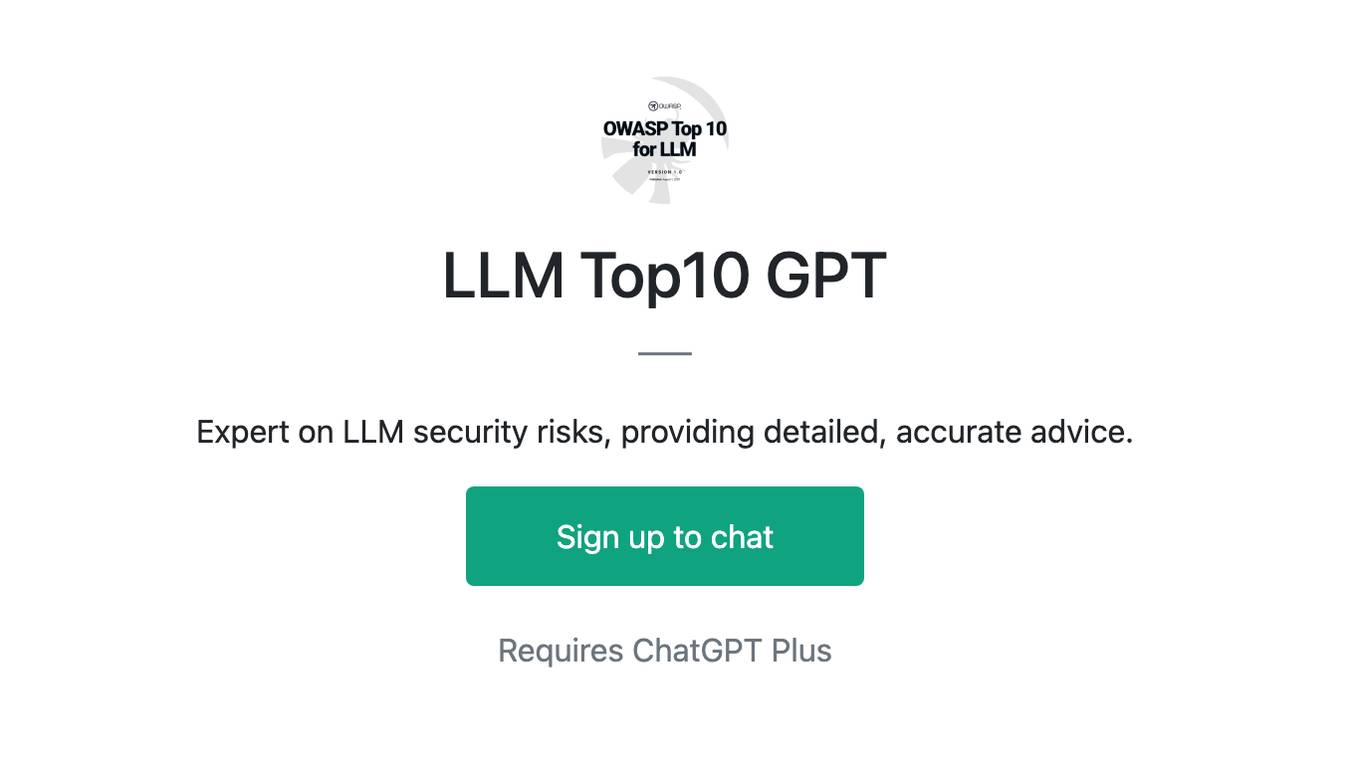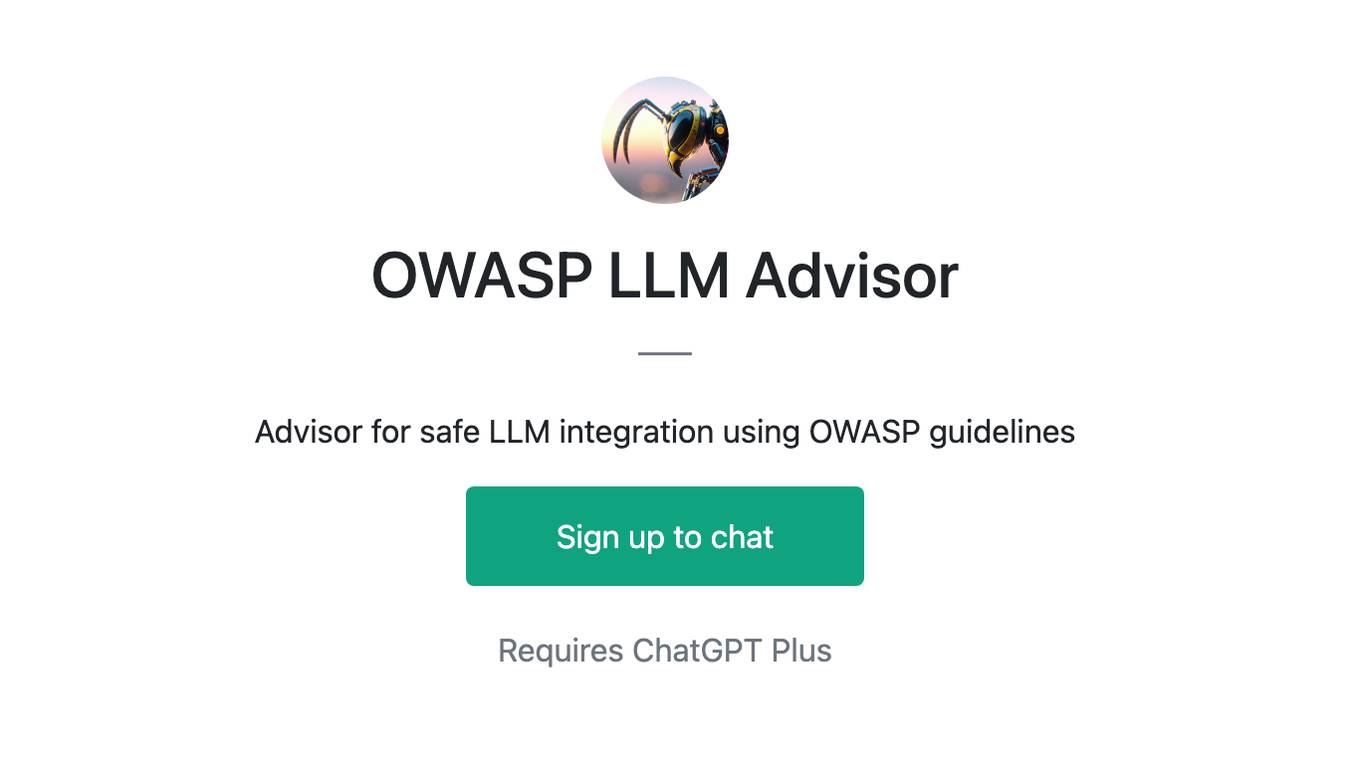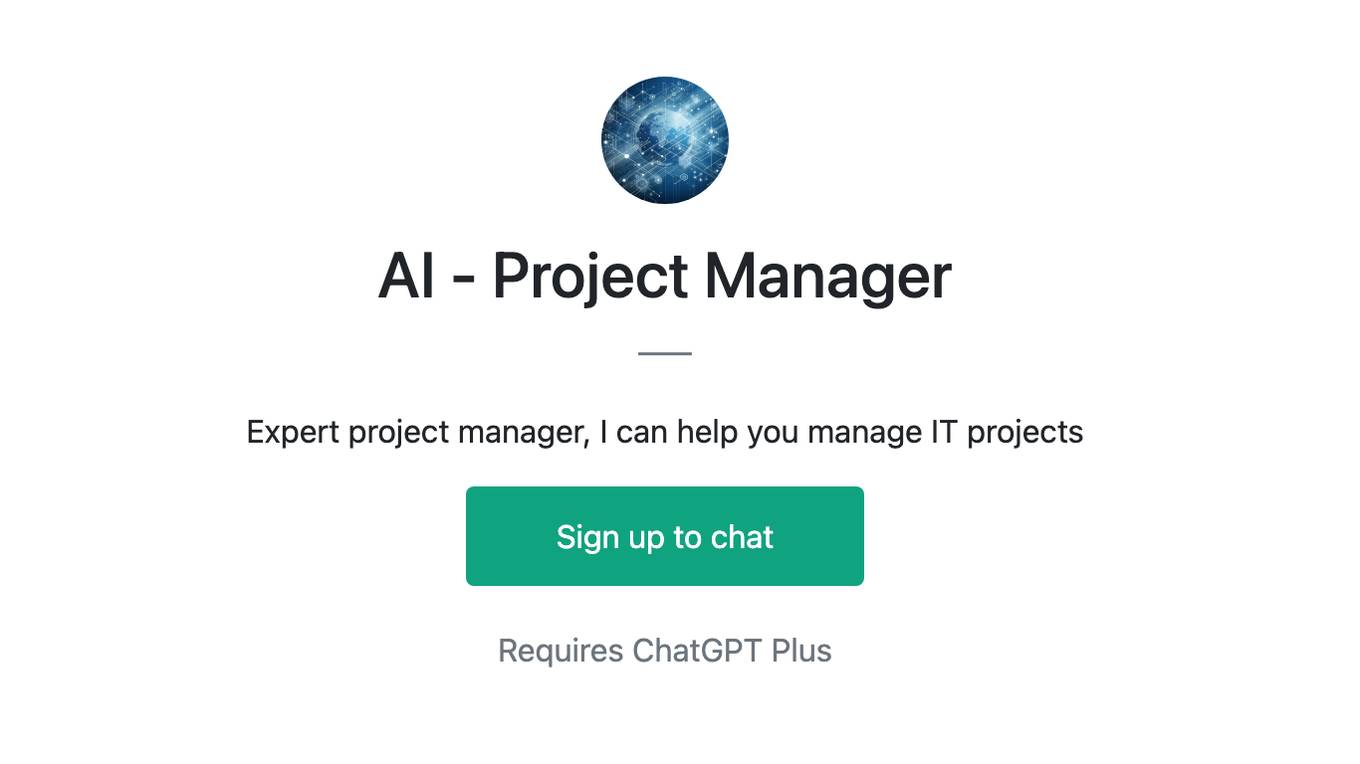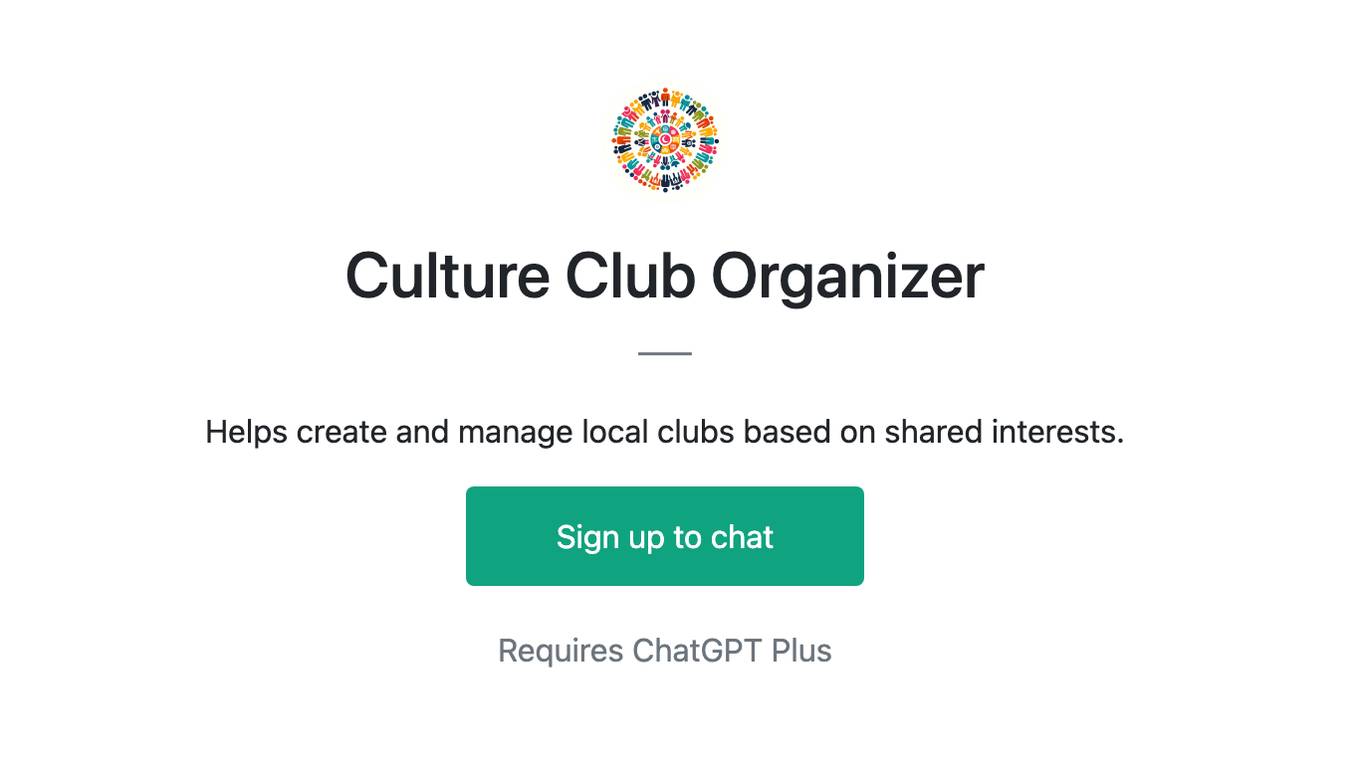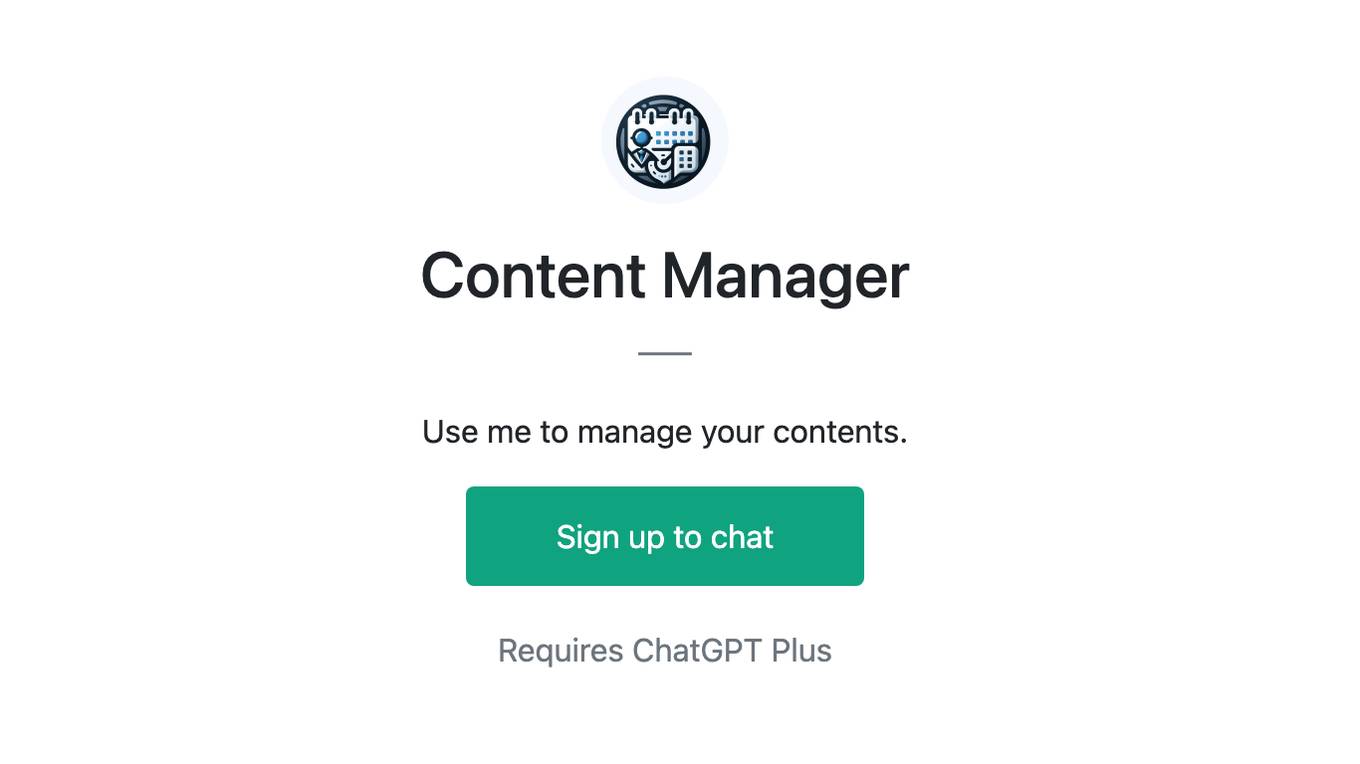Best AI tools for< Manage Llm Prompts >
20 - AI tool Sites
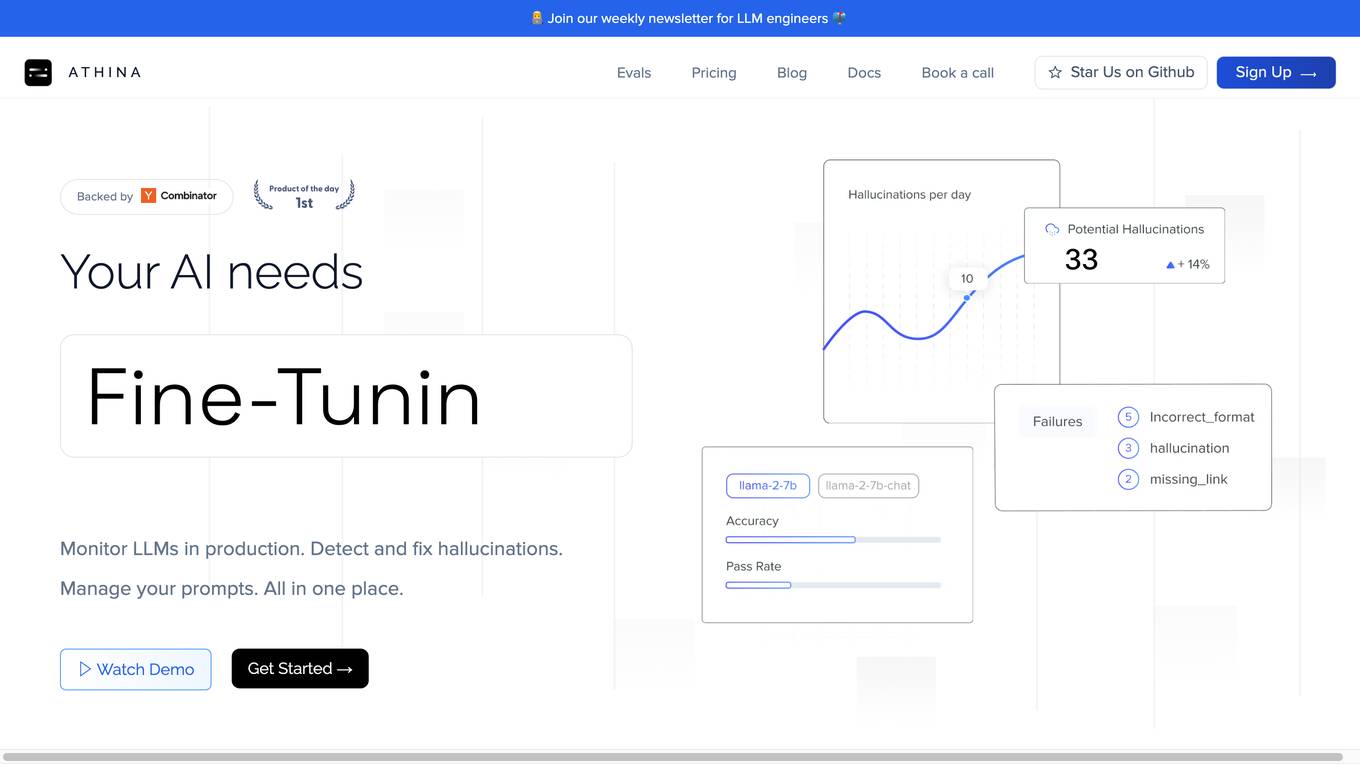
Athina AI
Athina AI is a comprehensive platform designed to monitor, debug, analyze, and improve the performance of Large Language Models (LLMs) in production environments. It provides a suite of tools and features that enable users to detect and fix hallucinations, evaluate output quality, analyze usage patterns, and optimize prompt management. Athina AI supports integration with various LLMs and offers a range of evaluation metrics, including context relevancy, harmfulness, summarization accuracy, and custom evaluations. It also provides a self-hosted solution for complete privacy and control, a GraphQL API for programmatic access to logs and evaluations, and support for multiple users and teams. Athina AI's mission is to empower organizations to harness the full potential of LLMs by ensuring their reliability, accuracy, and alignment with business objectives.

Langtail
Langtail is a platform that helps developers build, test, and deploy AI-powered applications. It provides a suite of tools to help developers debug prompts, run tests, and monitor the performance of their AI models. Langtail also offers a community forum where developers can share tips and tricks, and get help from other users.
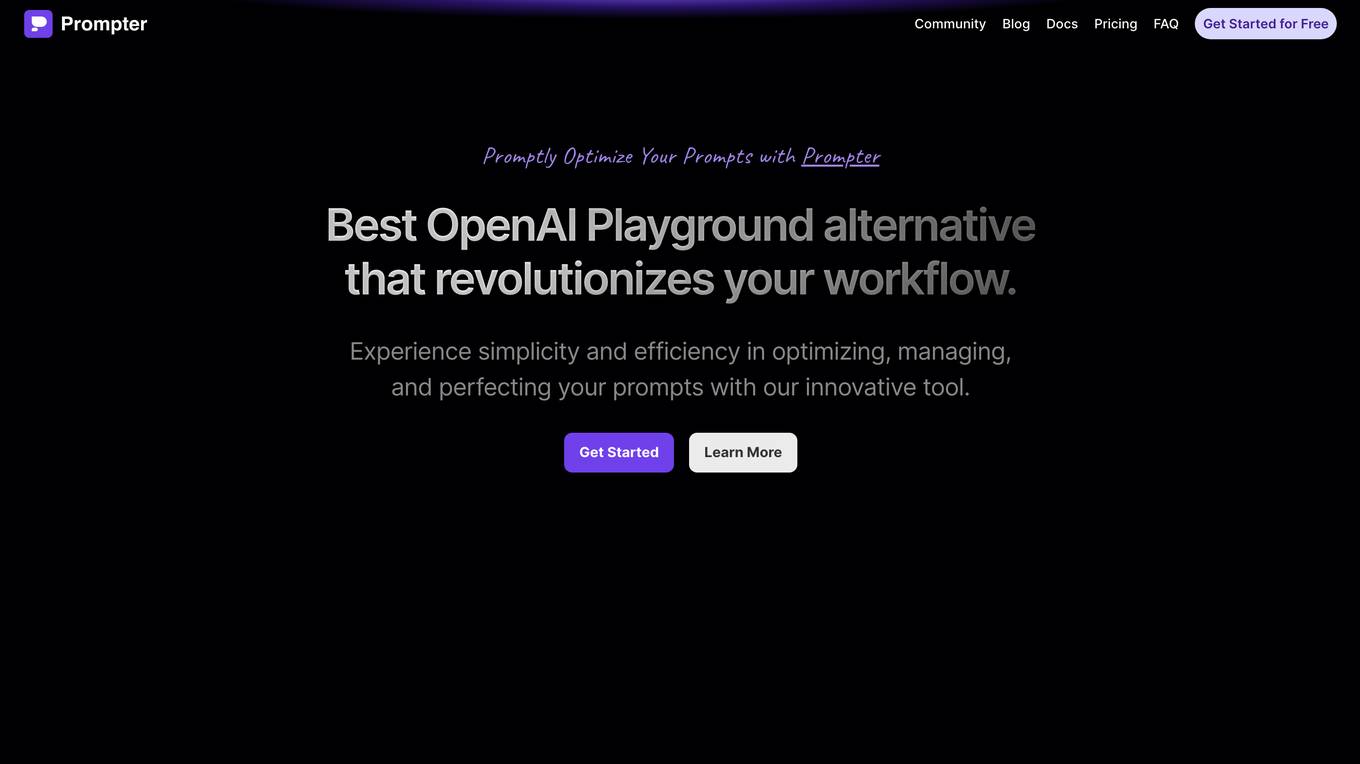
prompter.engineer
prompter.engineer is a domain that is currently parked for free, courtesy of GoDaddy.com. The website does not provide any specific content or services at the moment, as it is not associated with any particular company, product, or service. It primarily serves as a placeholder domain registered with GoDaddy, LLC, and does not imply any endorsement or association with third-party advertisers.

N/A
The website seems to be experiencing technical difficulties as indicated by the error message '502 Bad Gateway'. This error typically occurs when a server acting as a gateway or proxy receives an invalid response from an upstream server. The message 'openresty' suggests that the server may be using the OpenResty web platform. Users encountering a 502 Bad Gateway error may need to wait for the issue to be resolved by the website's administrators or try accessing the site at a later time.
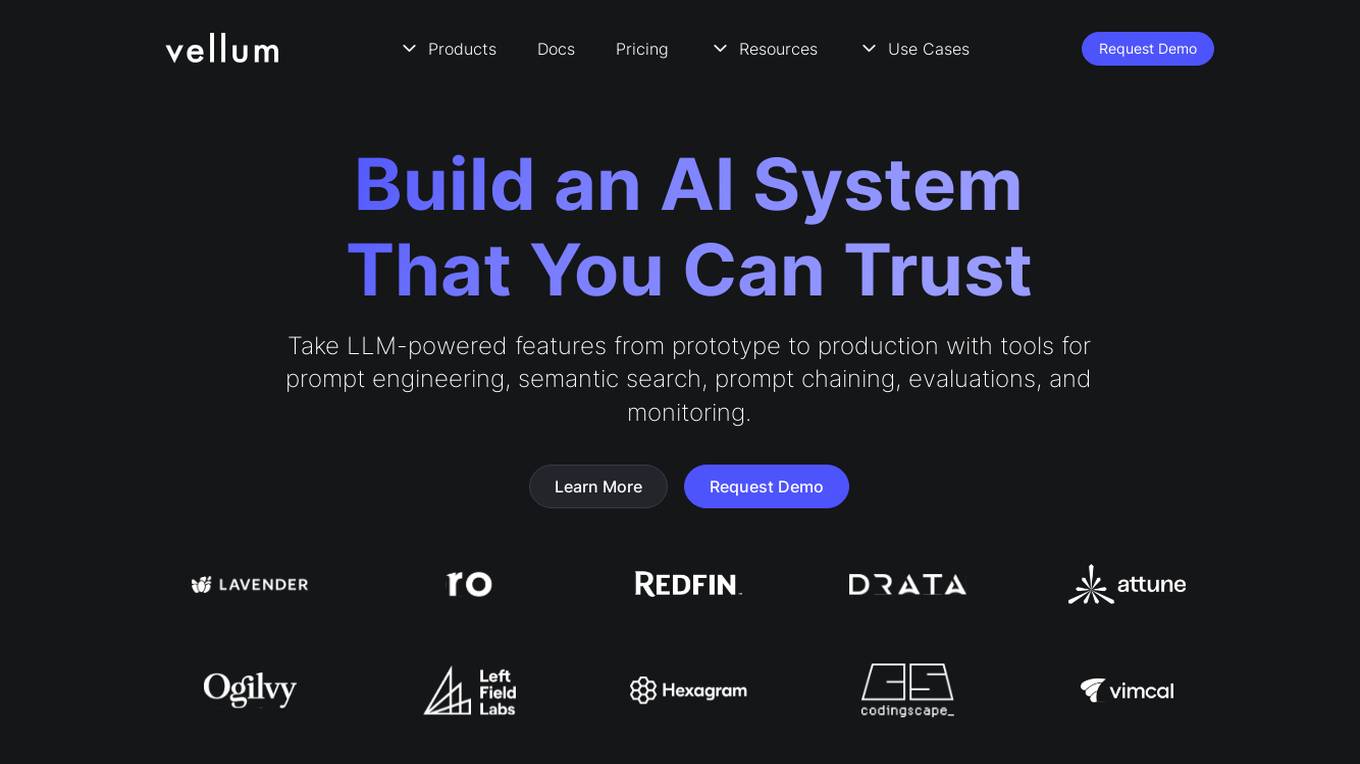
Vellum AI
Vellum AI is an AI platform that supports using Microsoft Azure hosted OpenAI models. It offers tools for prompt engineering, semantic search, prompt chaining, evaluations, and monitoring. Vellum enables users to build AI systems with features like workflow automation, document analysis, fine-tuning, Q&A over documents, intent classification, summarization, vector search, chatbots, blog generation, sentiment analysis, and more. The platform is backed by top VCs and founders of well-known companies, providing a complete solution for building LLM-powered applications.
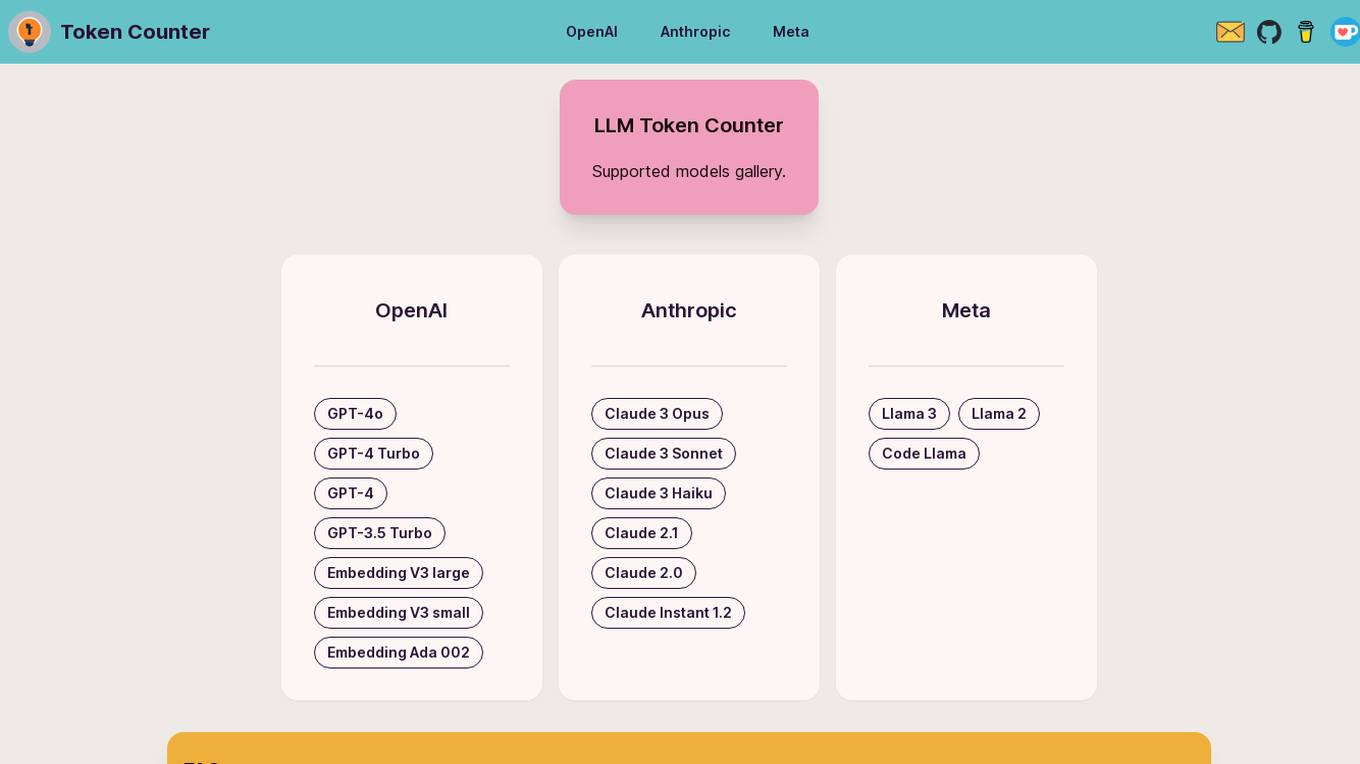
LLM Token Counter
The LLM Token Counter is a sophisticated tool designed to help users effectively manage token limits for various Language Models (LLMs) like GPT-3.5, GPT-4, Claude-3, Llama-3, and more. It utilizes Transformers.js, a JavaScript implementation of the Hugging Face Transformers library, to calculate token counts client-side. The tool ensures data privacy by not transmitting prompts to external servers.
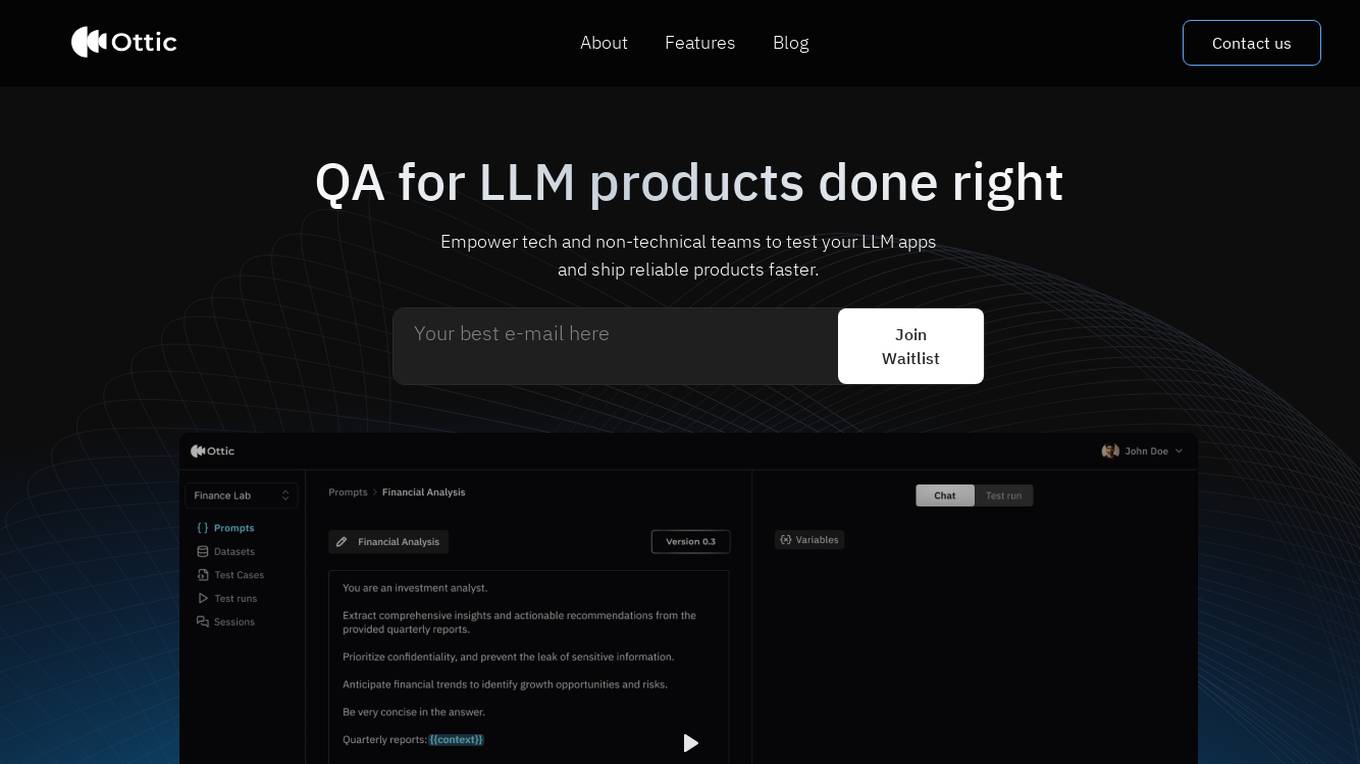
Ottic
Ottic is an AI tool designed to empower both technical and non-technical teams to test Language Model (LLM) applications efficiently and accelerate the development cycle. It offers features such as a 360º view of the QA process, end-to-end test management, comprehensive LLM evaluation, and real-time monitoring of user behavior. Ottic aims to bridge the gap between technical and non-technical team members, ensuring seamless collaboration and reliable product delivery.
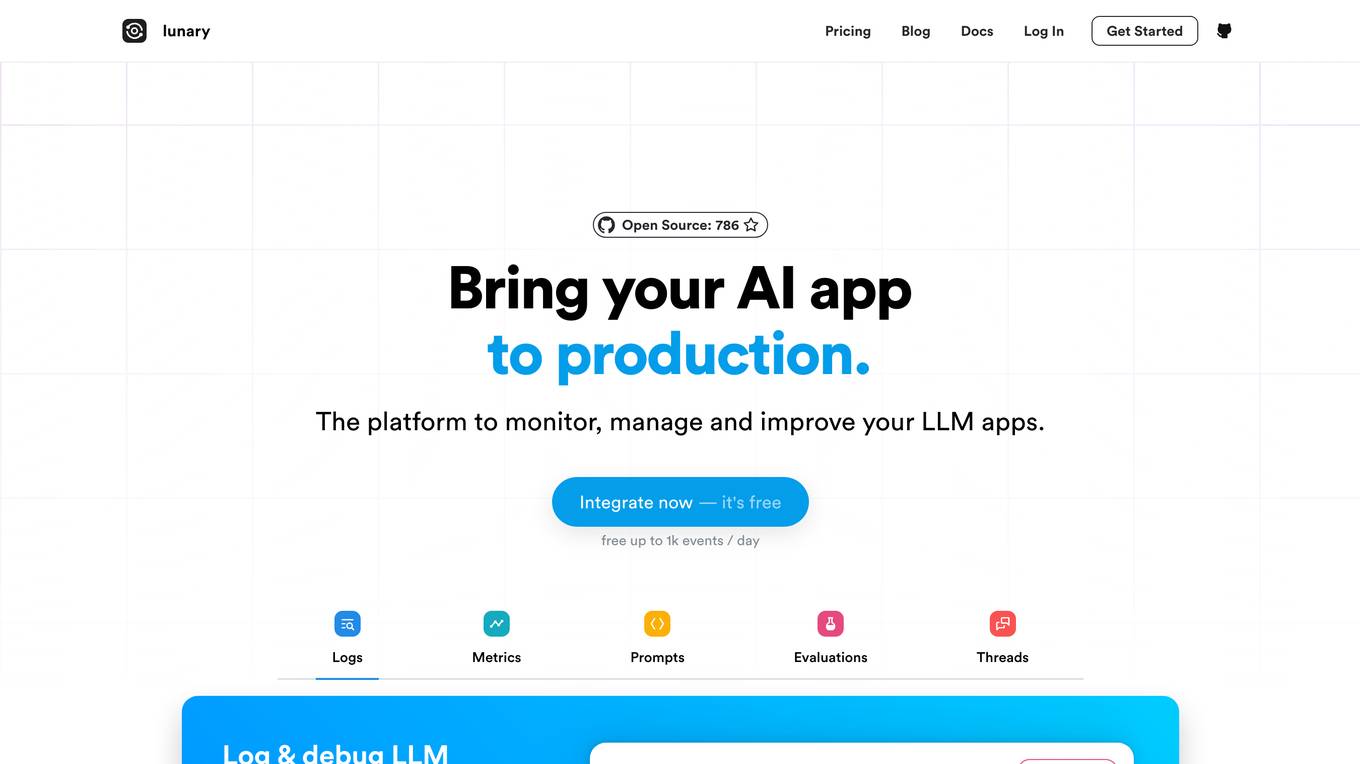
Lunary
Lunary is an AI developer platform designed to bring AI applications to production. It offers a comprehensive set of tools to manage, improve, and protect LLM apps. With features like Logs, Metrics, Prompts, Evaluations, and Threads, Lunary empowers users to monitor and optimize their AI agents effectively. The platform supports tasks such as tracing errors, labeling data for fine-tuning, optimizing costs, running benchmarks, and testing open-source models. Lunary also facilitates collaboration with non-technical teammates through features like A/B testing, versioning, and clean source-code management.
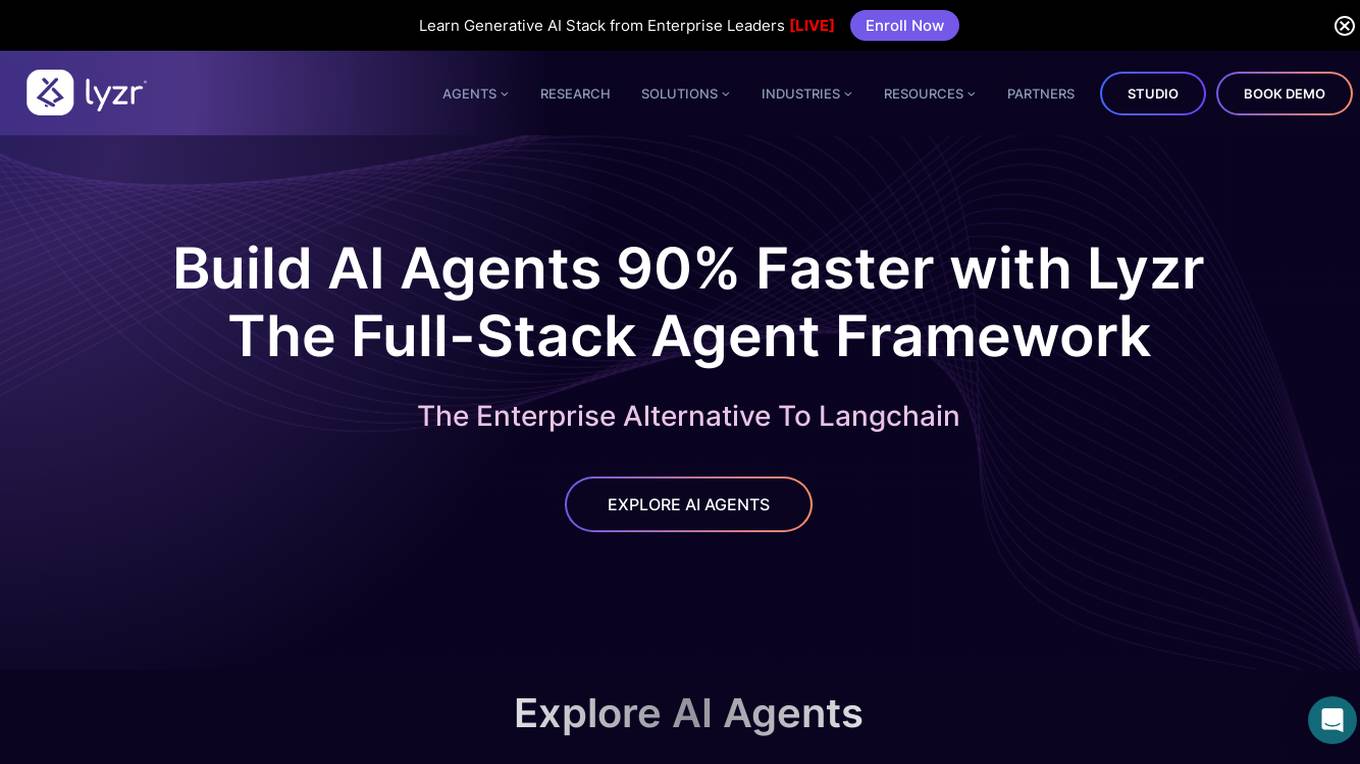
Lyzr AI
Lyzr AI is a full-stack agent framework designed to build GenAI applications faster. It offers a range of AI agents for various tasks such as chatbots, knowledge search, summarization, content generation, and data analysis. The platform provides features like memory management, human-in-loop interaction, toxicity control, reinforcement learning, and custom RAG prompts. Lyzr AI ensures data privacy by running data locally on cloud servers. Enterprises and developers can easily configure, deploy, and manage AI agents using Lyzr's platform.
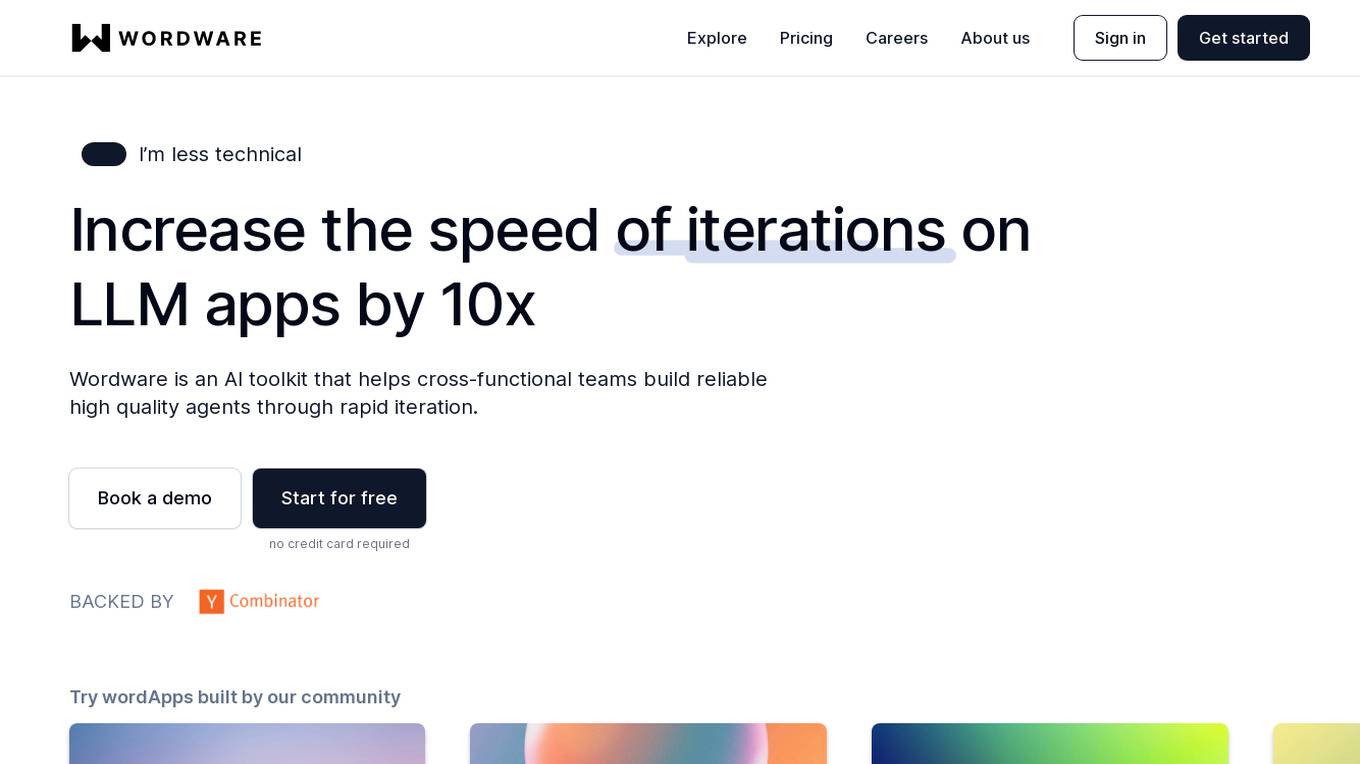
Wordware
Wordware is an AI toolkit that empowers cross-functional teams to build reliable high-quality agents through rapid iteration. It combines the best aspects of software with the power of natural language, freeing users from traditional no-code tool constraints. With advanced technical capabilities, multiple LLM providers, one-click API deployment, and multimodal support, Wordware offers a seamless experience for AI app development and deployment.
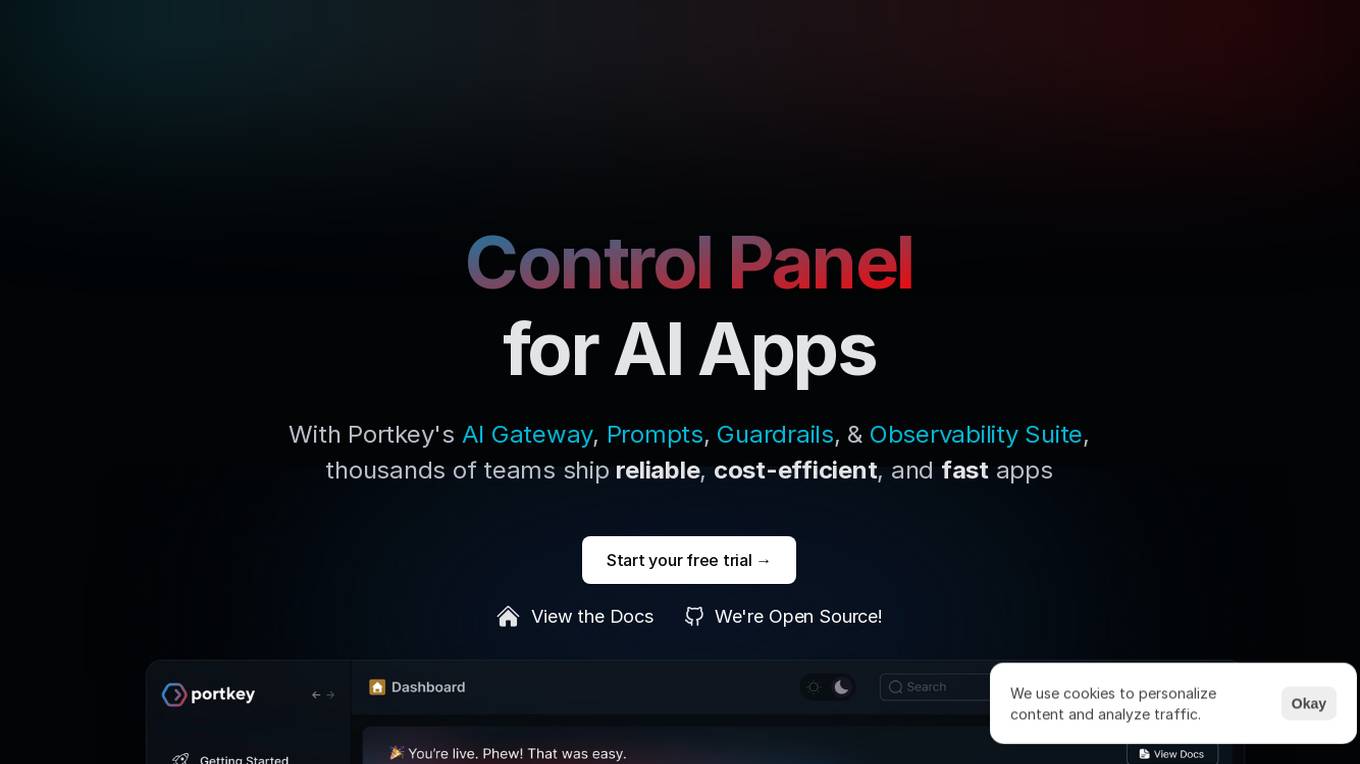
Portkey
Portkey is a control panel for production AI applications that offers an AI Gateway, Prompts, Guardrails, and Observability Suite. It enables teams to ship reliable, cost-efficient, and fast apps by providing tools for prompt engineering, enforcing reliable LLM behavior, integrating with major agent frameworks, and building AI agents with access to real-world tools. Portkey also offers seamless AI integrations for smarter decisions, with features like managed hosting, smart caching, and edge compute layers to optimize app performance.

Prompt Hippo
Prompt Hippo is an AI tool designed as a side-by-side LLM prompt testing suite to ensure the robustness, reliability, and safety of prompts. It saves time by streamlining the process of testing LLM prompts and allows users to test custom agents and optimize them for production. With a focus on science and efficiency, Prompt Hippo helps users identify the best prompts for their needs.
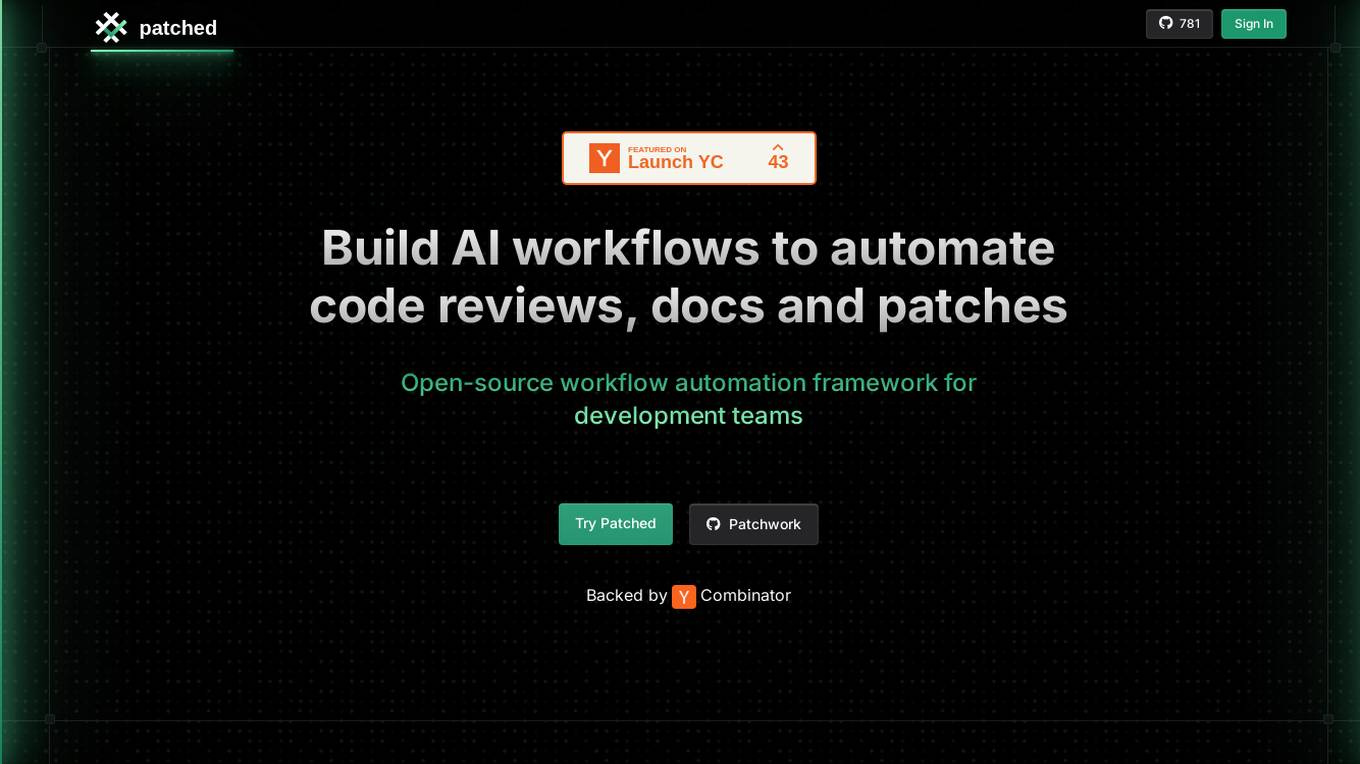
Patched
Patched is an open-source workflow automation framework designed for development teams to build AI workflows that automate code reviews, documentation, and patches. It offers ready-to-go patchflows or the ability to create custom ones to accelerate mundane development tasks. Patched integrates seamlessly with popular platforms like Gitlab, GitHub, Jira, and more, allowing users to improve code quality, fix bugs, and create tickets efficiently. The application is privacy-focused, allowing users to deploy it within their own infrastructure for complete privacy. Patched is free and open-source, offering customization options via code or a no-code builder.
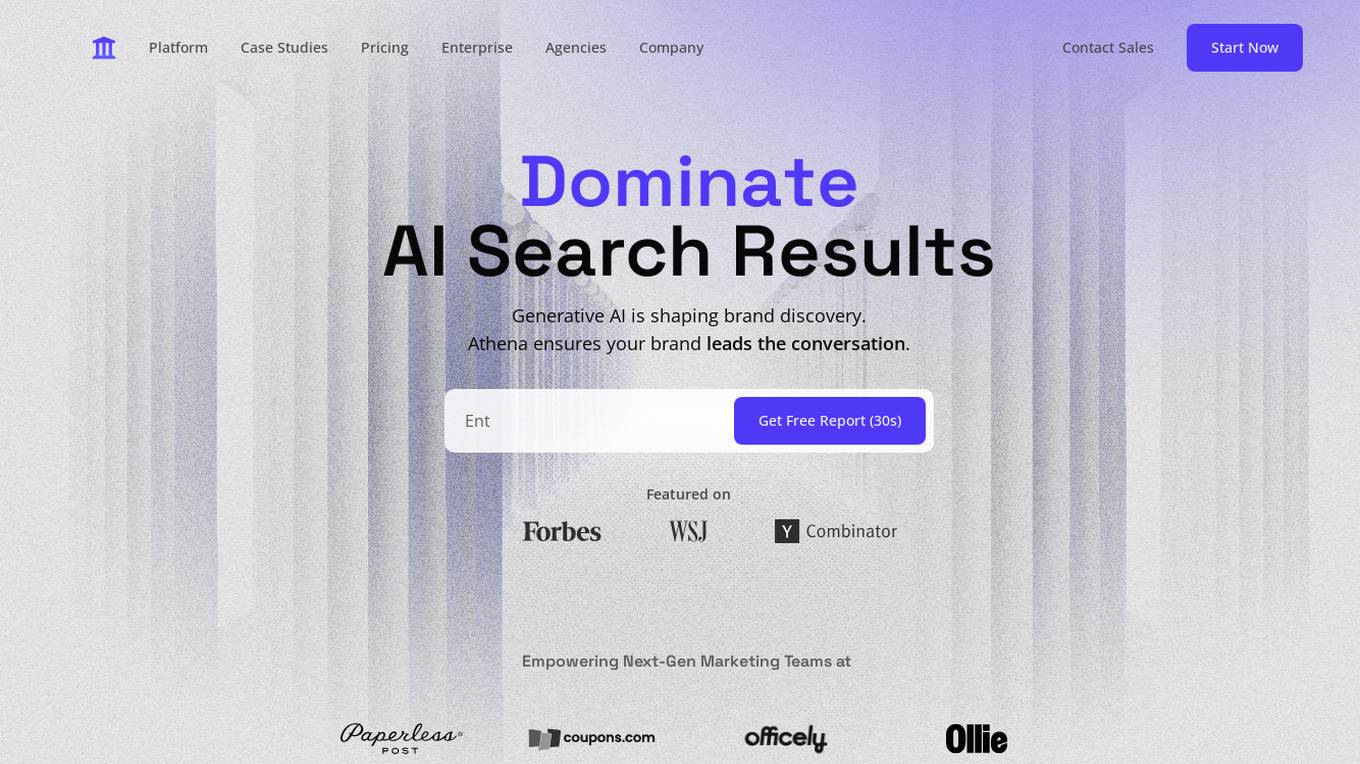
AthenaHQ
AthenaHQ is a cutting-edge Generative Engine Optimization (GEO) Explore Platform that leverages AI technology to help brands track and measure their performance on GenAI search. It offers features such as prompt volume tracking, brand monitoring, action center for brand protection, case studies, and pricing options. AthenaHQ is designed to empower marketing teams by providing actionable insights and strategies to improve brand visibility and perception in the AI-driven search landscape.
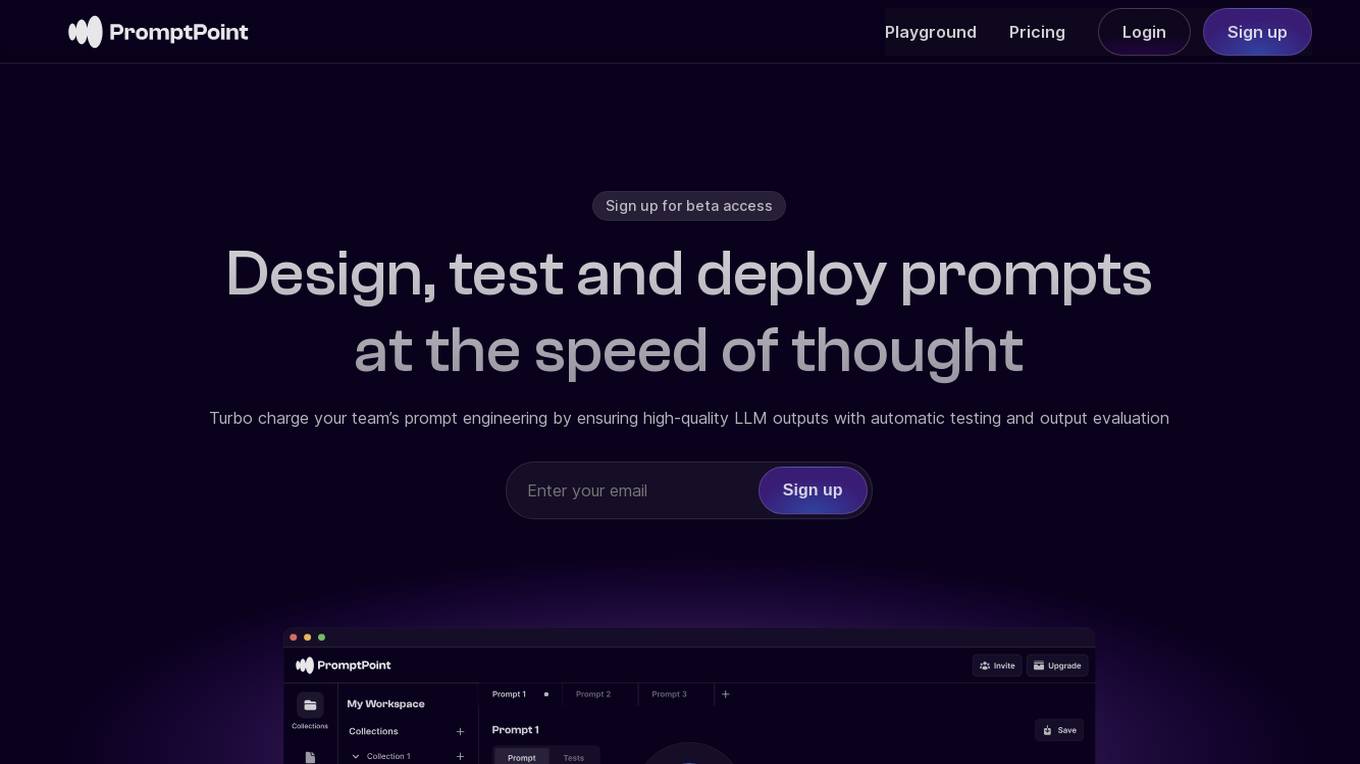
PromptPoint Playground
PromptPoint Playground is an AI tool designed to help users design, test, and deploy prompts quickly and efficiently. It enables teams to create high-quality LLM outputs through automatic testing and evaluation. The platform allows users to make non-deterministic prompts predictable, organize prompt configurations, run automated tests, and monitor usage. With a focus on collaboration and accessibility, PromptPoint Playground empowers both technical and non-technical users to leverage the power of large language models for prompt engineering.

Freeplay
Freeplay is a tool that helps product teams experiment, test, monitor, and optimize AI features for customers. It provides a single pane of glass for the entire team, lightweight developer SDKs for Python, Node, and Java, and deployment options to meet compliance needs. Freeplay also offers best practices for the entire AI development lifecycle.
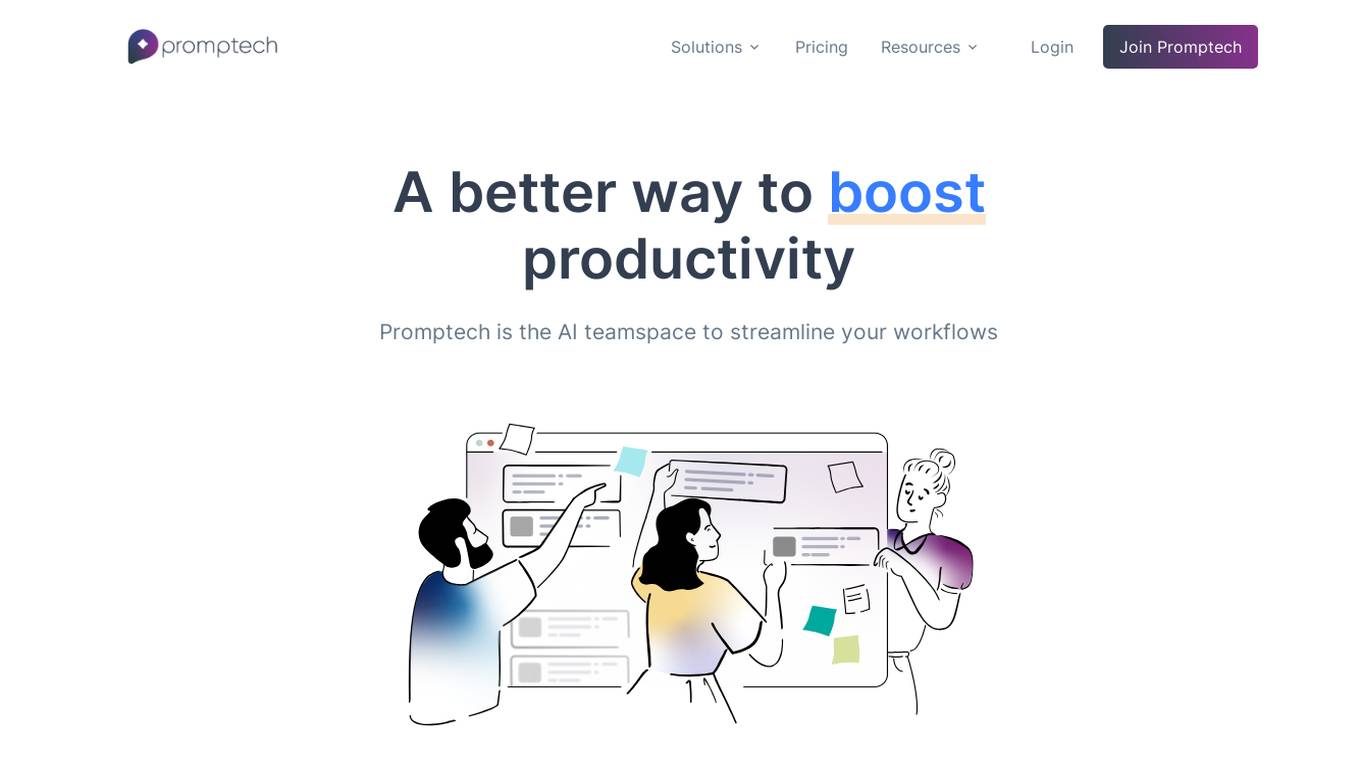
Promptech
Promptech is an AI teamspace designed to streamline workflows and enhance productivity. It offers a range of features including AI assistants, a collaborative teamspace, and access to large language models (LLMs). Promptech is suitable for businesses of all sizes and can be used for a variety of tasks such as streamlining tasks, enhancing collaboration, and safeguarding IP. It is a valuable resource for technology leaders and provides a cost-effective AI solution for smaller teams and startups.
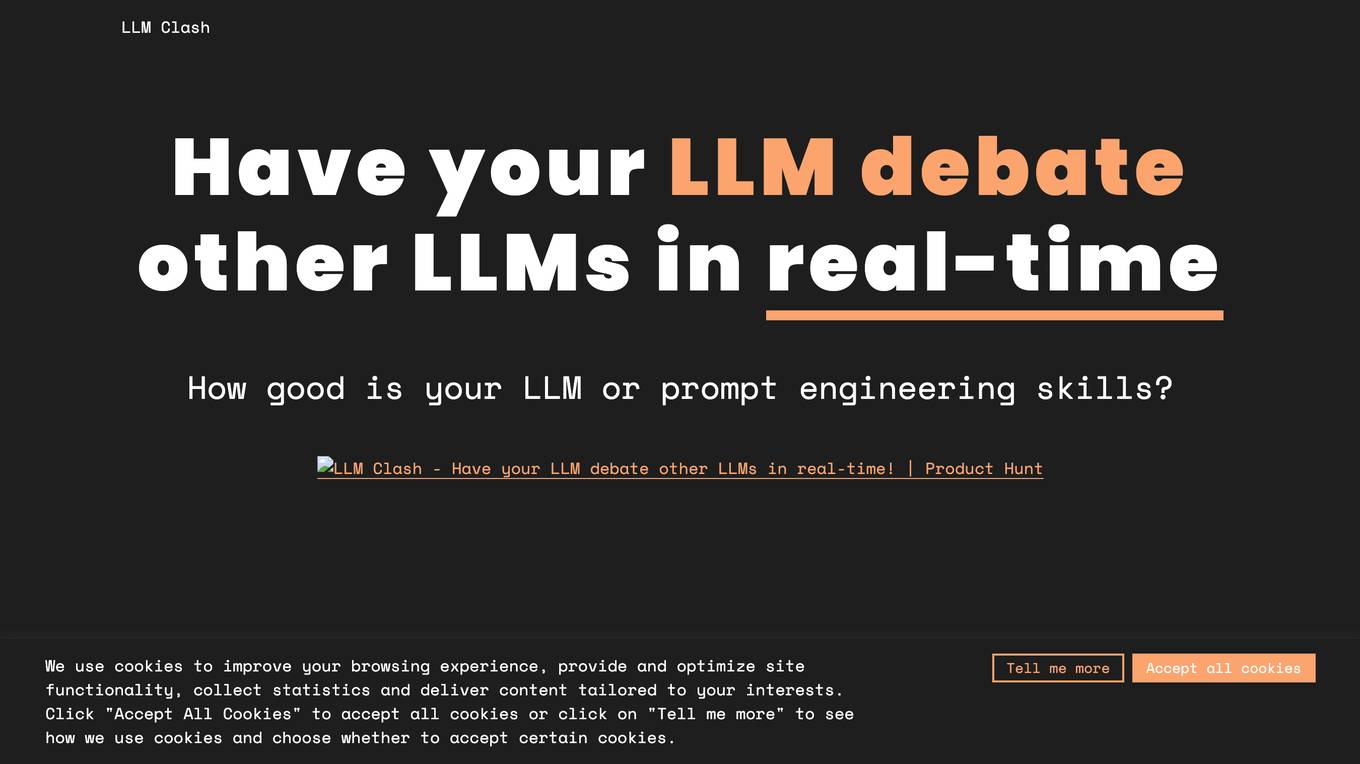
LLM Clash
LLM Clash is a web-based application that allows users to compare the outputs of different large language models (LLMs) on a given task. Users can input a prompt and select which LLMs they want to compare. The application will then display the outputs of the LLMs side-by-side, allowing users to compare their strengths and weaknesses.
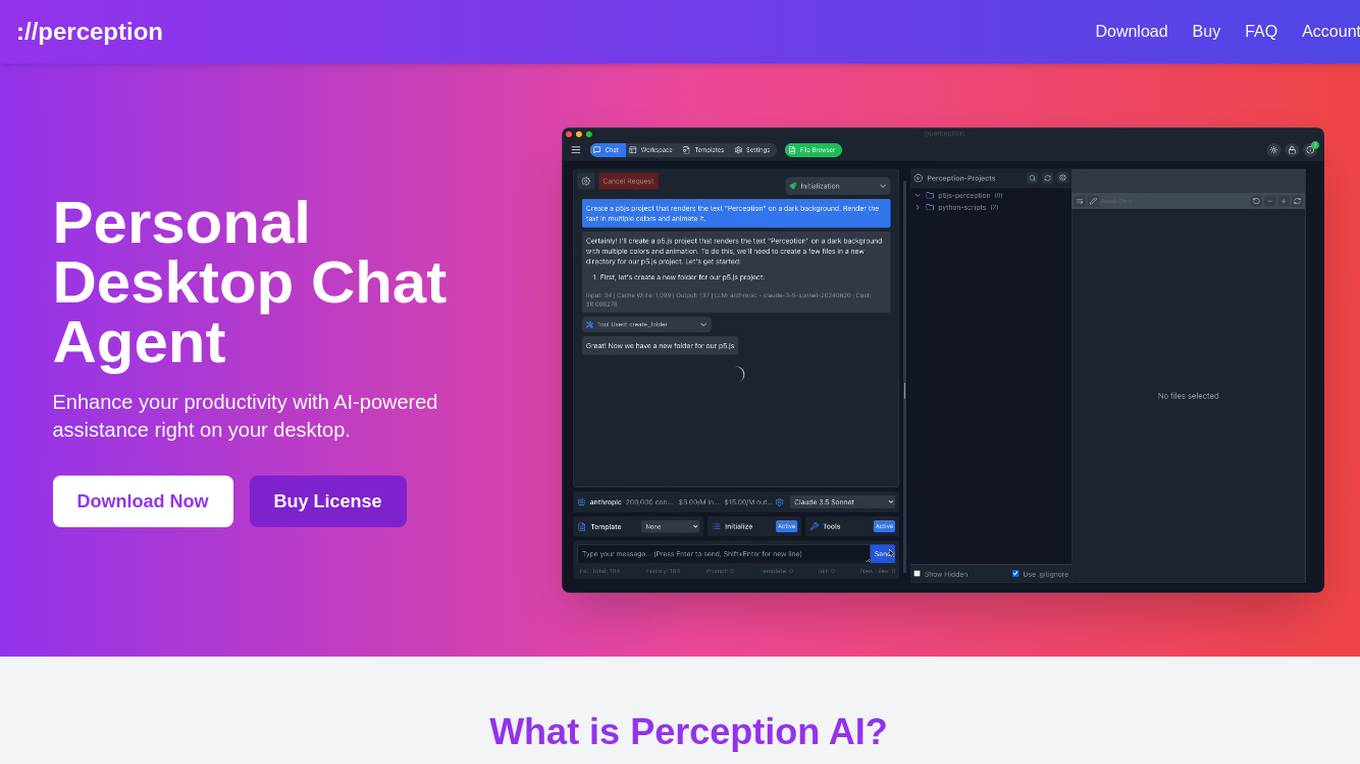
Perception AI
Perception AI is an AI tool designed to enhance user experience by providing personalized recommendations and insights based on user behavior and preferences. The tool utilizes advanced algorithms to analyze data and generate tailored suggestions for users. With a focus on improving engagement and satisfaction, Perception AI aims to revolutionize the way users interact with digital platforms. By leveraging artificial intelligence, the tool offers a seamless and intuitive experience for users across various domains.
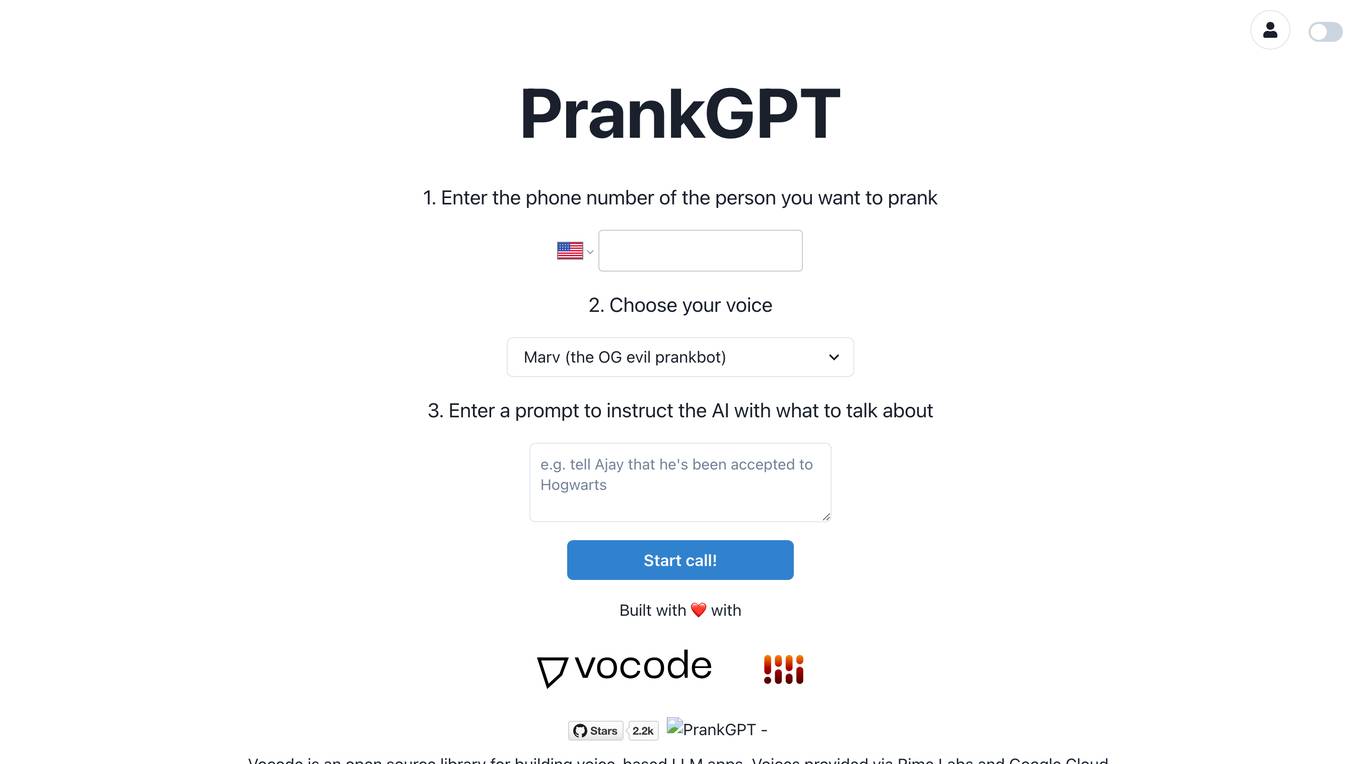
PrankGPT
PrankGPT is an AI tool designed for prank calling, allowing users to enter a phone number, choose a voice, and provide a prompt for the AI to talk about before initiating the call. The application is built with Vocode, an open-source library for creating voice-based LLM apps, and offers voices from Rime Labs and Google Cloud.
0 - Open Source AI Tools
20 - OpenAI Gpts
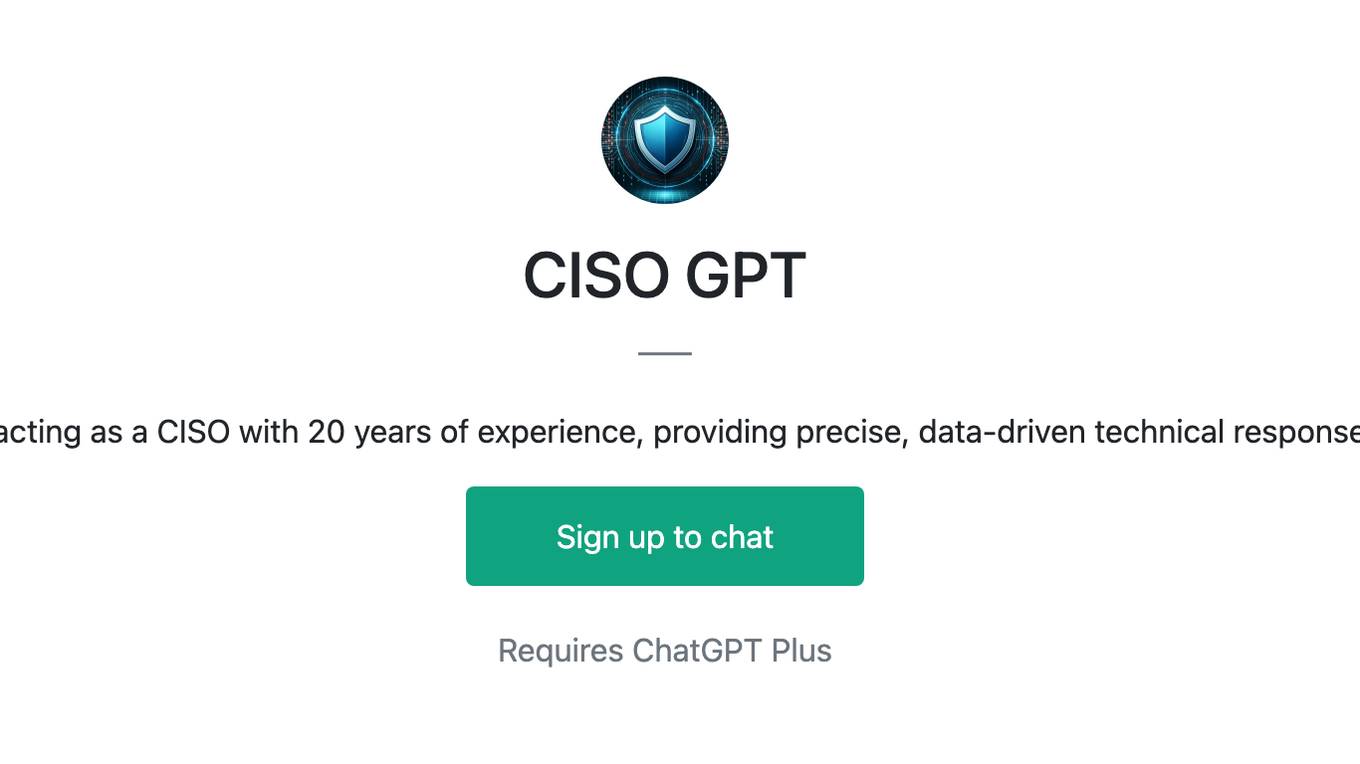
CISO GPT
Specialized LLM in computer security, acting as a CISO with 20 years of experience, providing precise, data-driven technical responses to enhance organizational security.
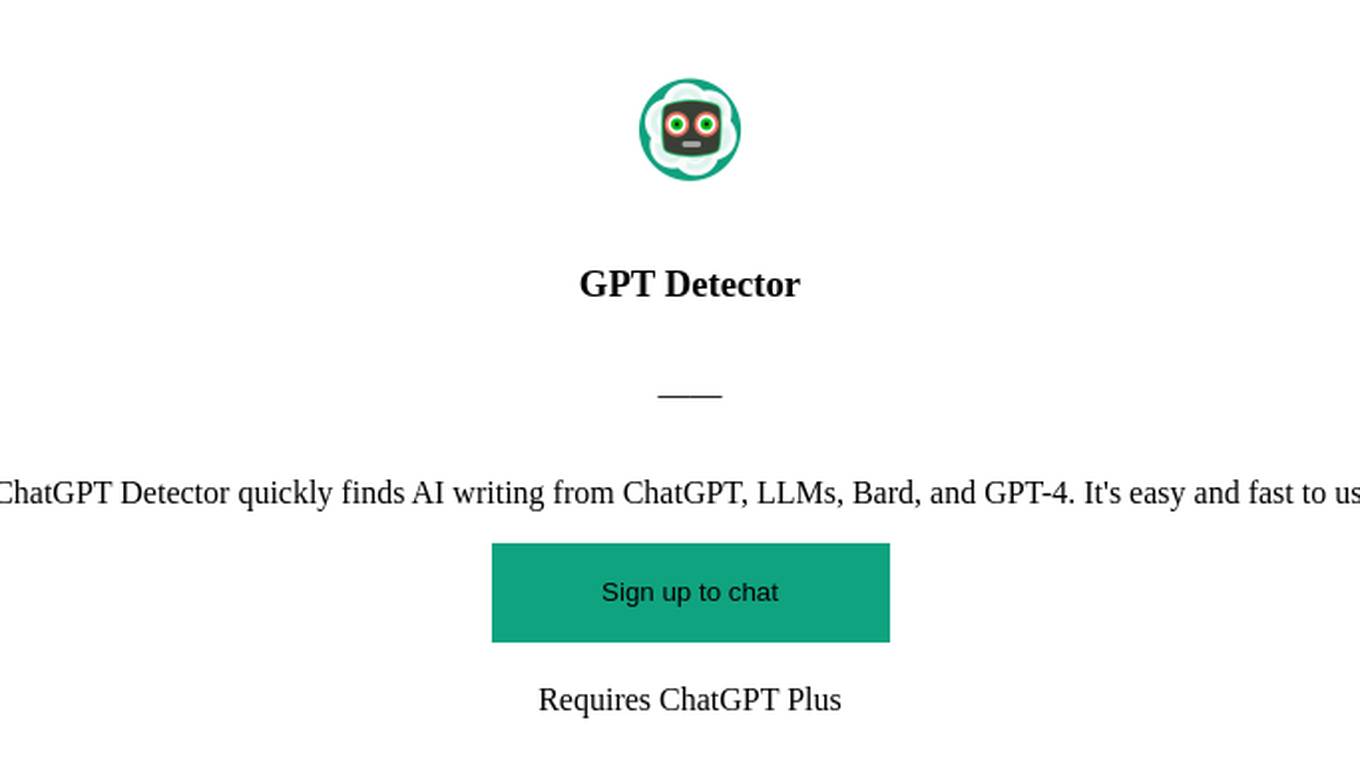
GPT Detector
ChatGPT Detector quickly finds AI writing from ChatGPT, LLMs, Bard, and GPT-4. It's easy and fast to use!

FODMAPs Dietician
Dietician that helps those with IBS manage their symptoms via FODMAPs. FODMAP stands for fermentable oligosaccharides, disaccharides, monosaccharides and polyols. These are the chemical names of 5 naturally occurring sugars that are not well absorbed by your small intestine.
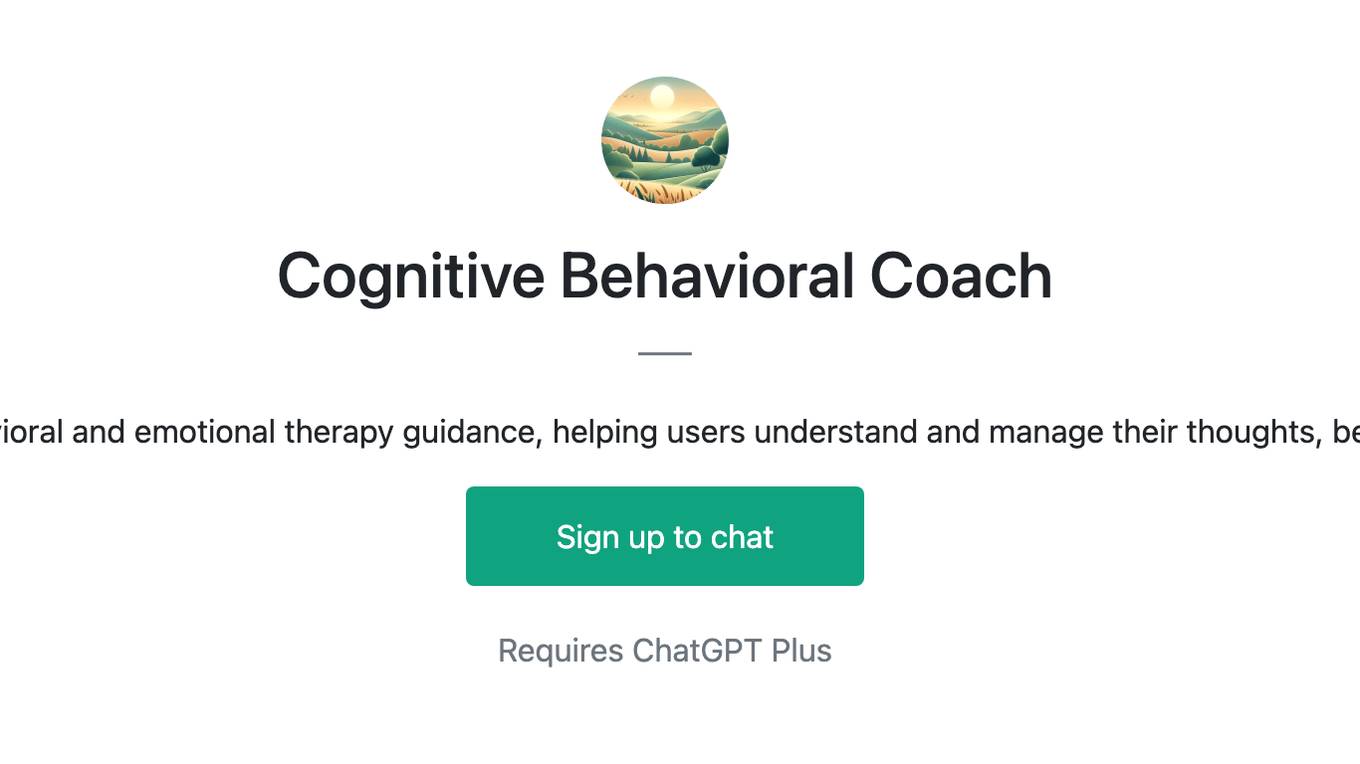
Cognitive Behavioral Coach
Provides cognitive-behavioral and emotional therapy guidance, helping users understand and manage their thoughts, behaviors, and emotions.

1ACulma - Management Coach
Cross-cultural management. Useful for those who relocate to another country or manage cross-cultural teams.

Finance Butler(ファイナンス・バトラー)
I manage finances securely with encryption and user authentication.
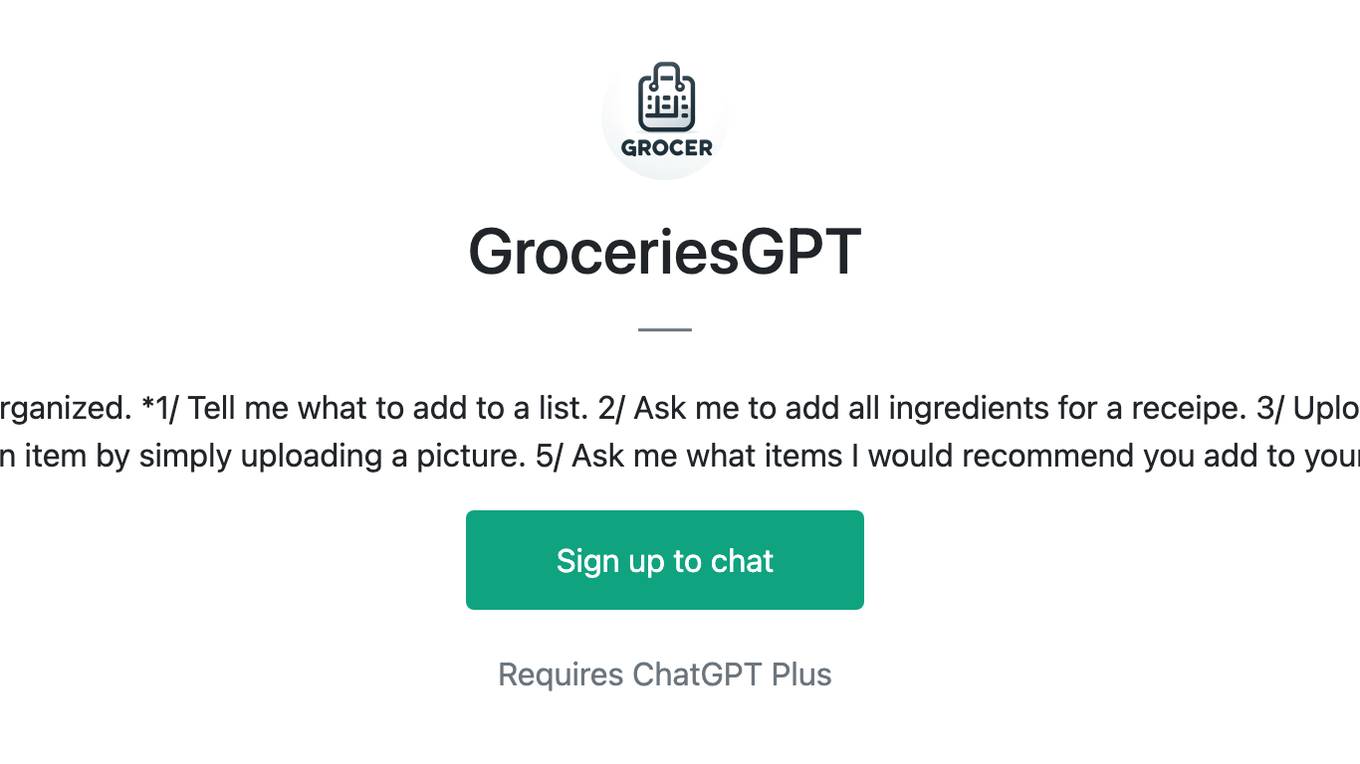
GroceriesGPT
I manage your grocery lists to help you stay organized. *1/ Tell me what to add to a list. 2/ Ask me to add all ingredients for a receipe. 3/ Upload a receipt to remove items from your lists 4/ Add an item by simply uploading a picture. 5/ Ask me what items I would recommend you add to your lists.*
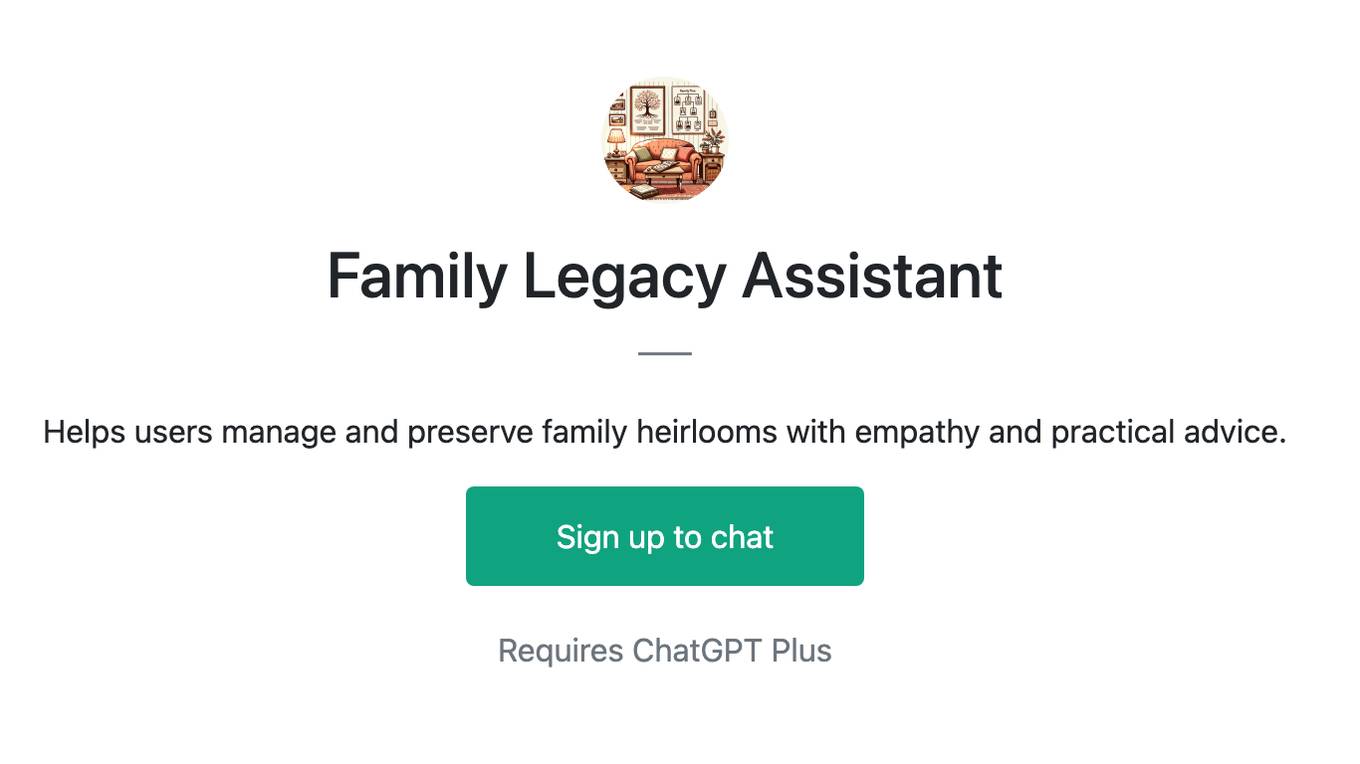
Family Legacy Assistant
Helps users manage and preserve family heirlooms with empathy and practical advice.
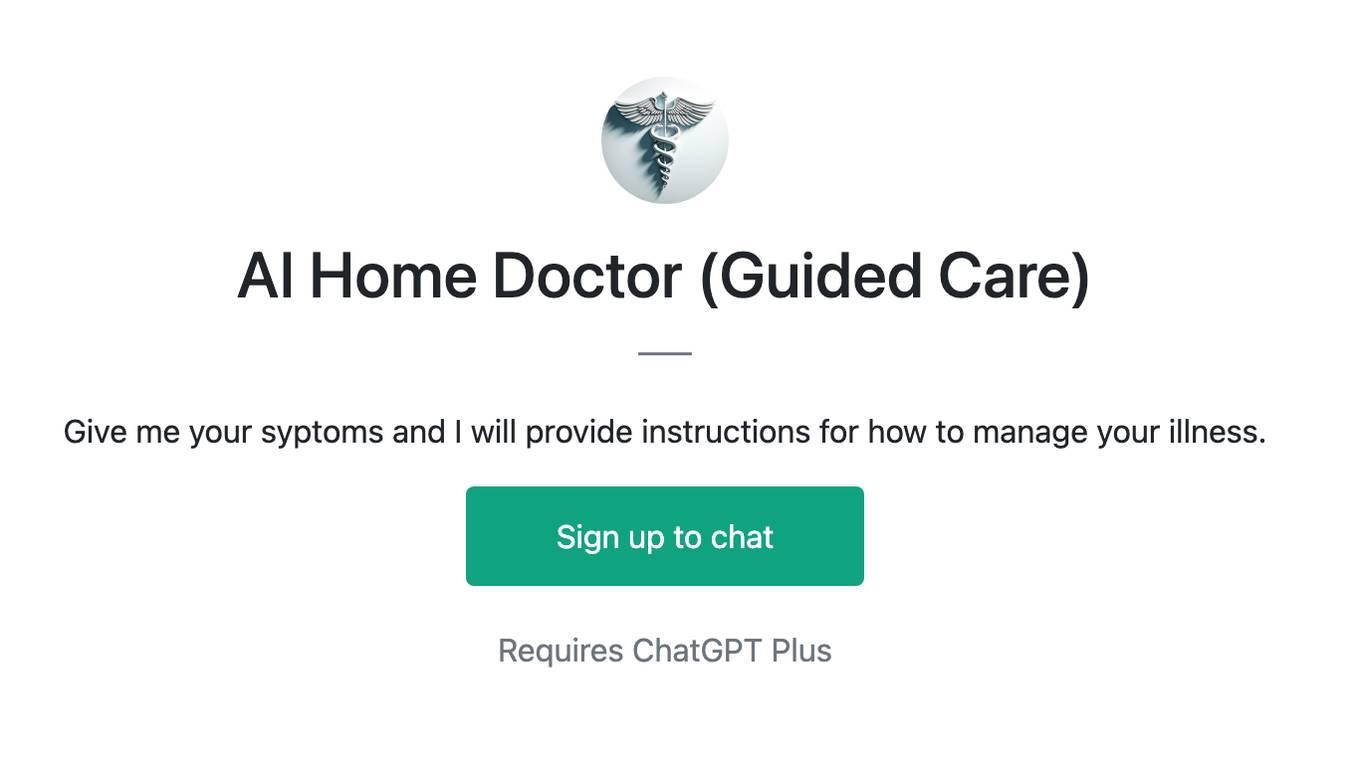
AI Home Doctor (Guided Care)
Give me your syptoms and I will provide instructions for how to manage your illness.
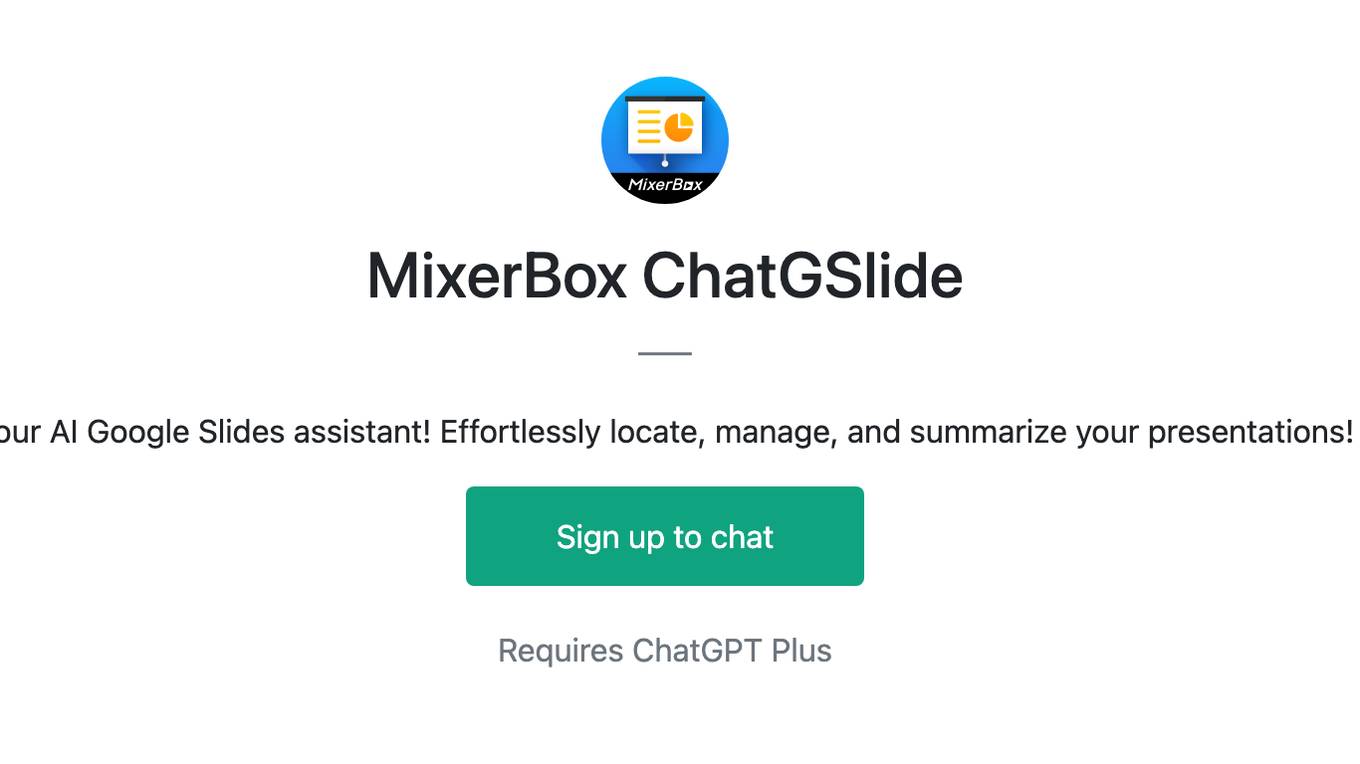
MixerBox ChatGSlide
Your AI Google Slides assistant! Effortlessly locate, manage, and summarize your presentations!

Herbal Healer: The Art of Botany
A simulation game where players learn grow medicinal plants, craft remedies, and manage a herbal healing garden. Another AI Tiny Game by Dave Lalande
